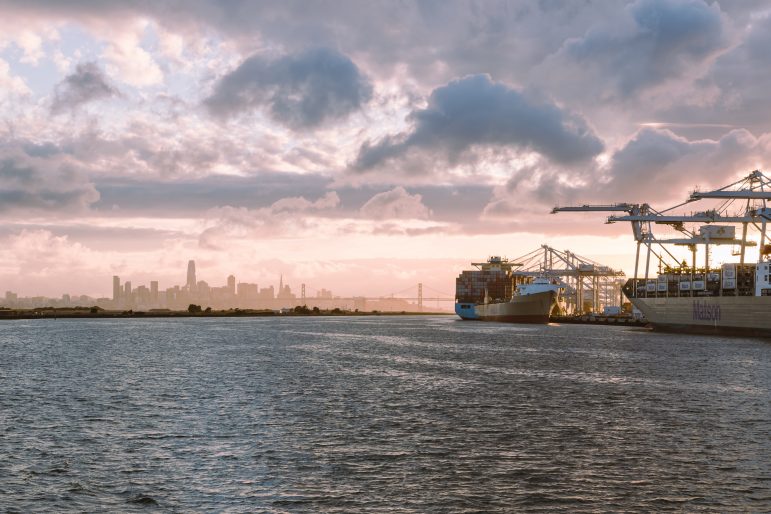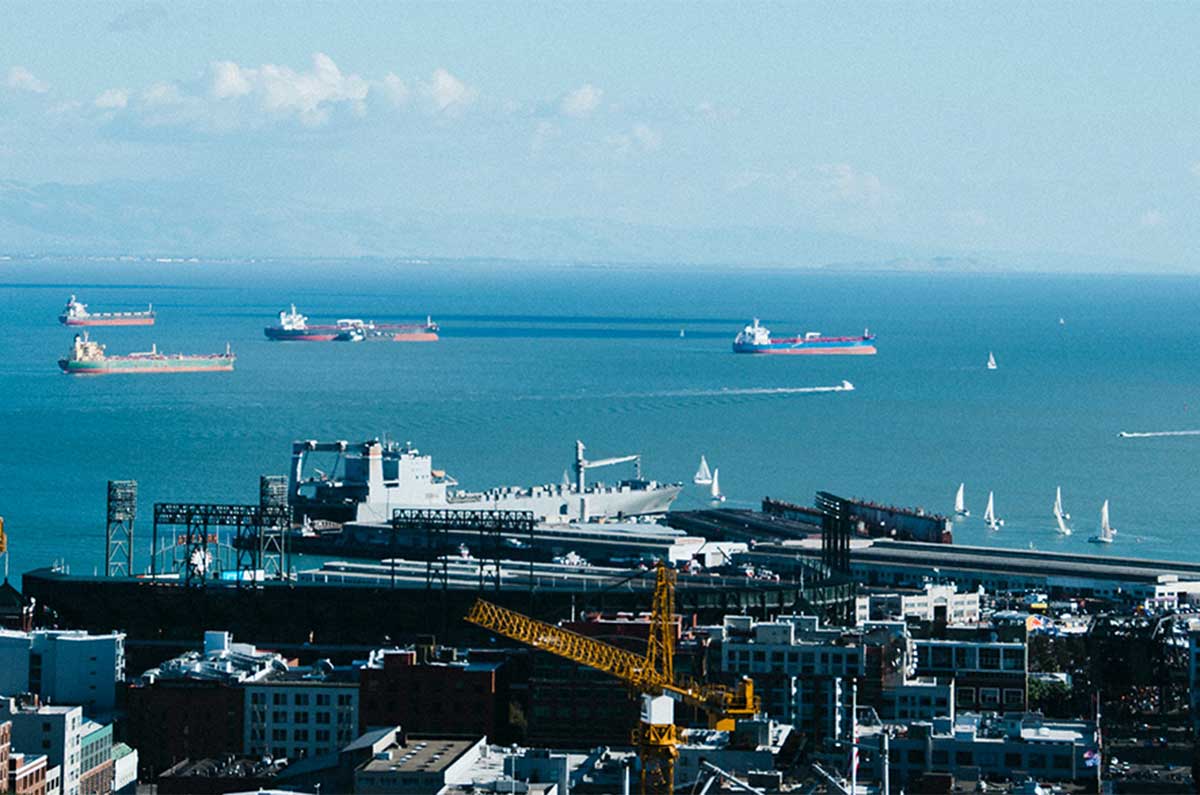Increased demand for shipping and exporting at the Port of Oakland is forcing large vessels to wait along the Central California coast until they can anchor there.
So, the Monterey Bay National Marine Sanctuary is working with the U.S. Coast Guard to remind large vessels to travel on advisable routes farther from the shore.
In the past few weeks, container cargo vessels, oil tankers and other large ships have been sited close to the Monterey Bay coast, said Dawn Hayes, acting superintendent for the Monterey Bay National Marine Sanctuary.
Getting too close to the coast threatens protected habitats and endangered species such as sea otters and leatherback sea turtles.
But the reason large vessels are getting so close is not because it is faster or even easier.
Ships are unable to anchor at the Port of Oakland because increased demand for shipping and exporting resulting from the pandemic has led to an “international trade boom” and the port has not been able to meet the demand, causing delays.
“Ships are full, ocean freight rates are sky high and the need for empty containers to ship more cargo is never-ending,” said Port of Oakland Maritime Director Bryan Brandes. “We just don’t see conditions easing in the next several months.”

Officials said Oakland received the equivalent of 97,538 20-foot import containers in March and shipped out the equivalent of 94,169 20-foot export boxes — both of which were single-month records at the 94-year-old port.
It is also about a 45 percent increase from March of 2020, according to port officials.
As a result, about a dozen ships are waiting offshore along the San Mateo, Santa Cruz and Monterey coastlines.
The sanctuary’s resource protection coordinator, Karen Grimmer, said there have not been any impacts to wildlife off the coast yet.
“And that’s because everybody’s been really cooperative,” Grimmer said.
She said mariners have been quick to comply with guidelines and route suggestions that require ships to wait 20 miles off the coast.
“That (policy) is because if there is any kind of issue with the vessel like it has a loss of steerage or collision or a spill, it’s far enough out that there’s time for a rescue time to get out to it,” Grimmer said.
It also gives enough distance between the vessel and the coast so that the oil, if spilled, does not impact wildlife as much.
The ports in Los Angeles and Long Beach have been experiencing a similar backup with more than 40 vessels waiting to dock at a port.
Port of Oakland officials said it is an international problem caused by three major pandemic-related factors: Consumers purchasing overseas goods to combat lockdown fatigue; retailers and manufacturers replenishing depleted inventories, and increased demand for American products, especially farm goods.
